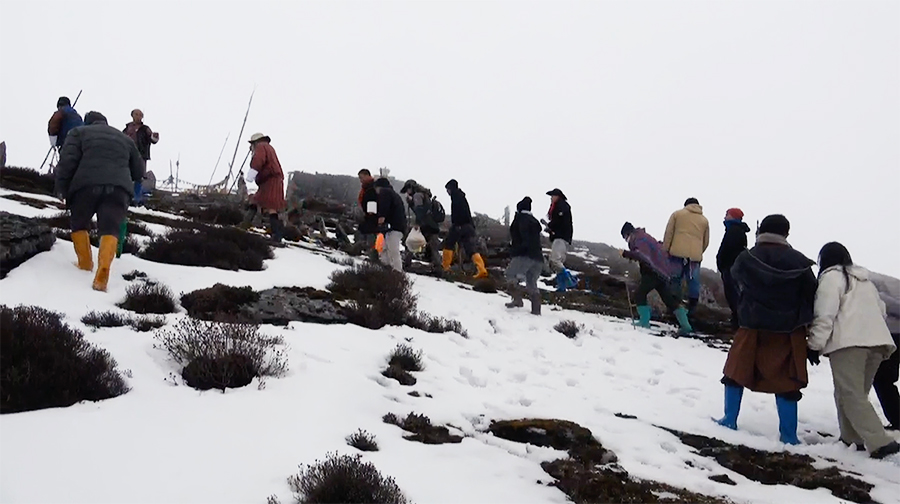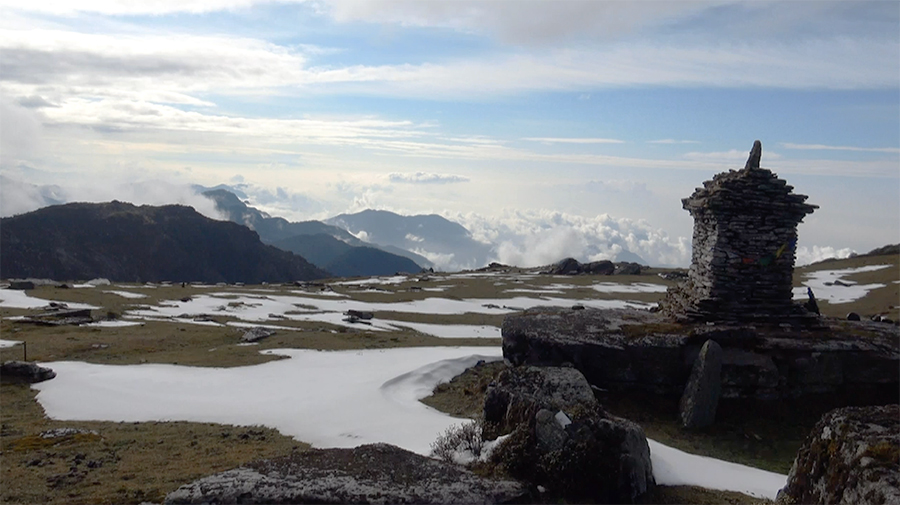 High in the mountains of Trashigang, Kangpar Chenla Ney is welcoming more pilgrims each year. However, visitors face difficulties due to lack of basic facilities such as toilet, water, or a place to stay. Efforts are underway to provide these facilities.
High in the mountains of Trashigang, Kangpar Chenla Ney is welcoming more pilgrims each year. However, visitors face difficulties due to lack of basic facilities such as toilet, water, or a place to stay. Efforts are underway to provide these facilities.
 Chenla Ney, which means “High Mountain,” is considered to be blessed by Guru Rinpoche. It was revealed as a sacred site around 400 years ago by Drupwang Drakpa Gyeltshen, popularly known as Drupthob Khejay.
Chenla Ney, which means “High Mountain,” is considered to be blessed by Guru Rinpoche. It was revealed as a sacred site around 400 years ago by Drupwang Drakpa Gyeltshen, popularly known as Drupthob Khejay.
The site has been drawing an increasing number of visitors from across the country over the past few years.
 From the nearest road point, people trek through dense forests and rugged terrain for almost seven hours to reach the sacred site.
From the nearest road point, people trek through dense forests and rugged terrain for almost seven hours to reach the sacred site.
Devotees visit the site to receive blessings, witness early morning sunrise, and for sightseeing.
According to the records maintained with Threlphu Tshogpa, people visit the site during spring and autumn seasons. In the last two years, nearly 800 pilgrims visited the site.
However, they faced challenges due to a lack of basic infrastructure.
 These days, Trashigang district administration is developing mule track and works are underway to construct guesthouse, kitchen, toilet and provide drinking water.
These days, Trashigang district administration is developing mule track and works are underway to construct guesthouse, kitchen, toilet and provide drinking water.
The developmental works are expected to promote eco-tourism.
Sonam Tobgay, a resident said “Earlier, the trail was uneven and inconvenient for our horses. Luggage would often get damaged because of which guests become unhappy with our service. But now, with the ongoing development, the trail is improving. Once complete, it will shorten the travel time by 2 to 3 hours.”
Chezang Dorji, another resident said “There’s no proper place to spend the night or access clean water. Even the spring above the campsite isn’t reliable. If a water supply is provided, it will benefit everyone.”
The developmental works are expected to be completed by the end of this financial year. Global Environment Facility is investing Nu 6.5 M.
Once complete, pilgrims visiting Chenla Ney will have access to much-needed amenities, making their journey more comfortable and meaningful.
Sonam Darjay, Trashigang
Edited by Tshering Zam









